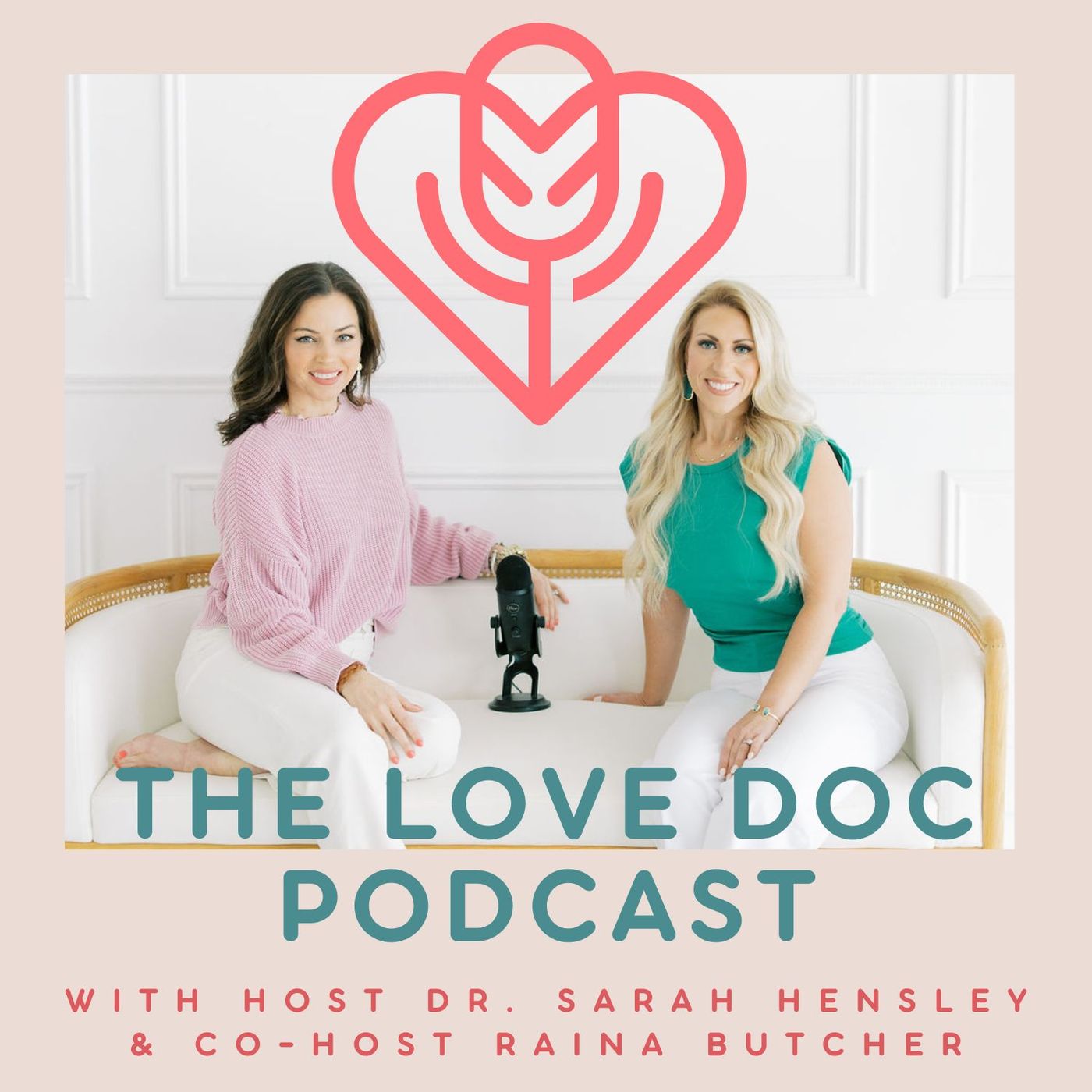Podcast Episode Details
Back to Podcast Episodes
Episode 21, Season 2: “The Pain of the Dismissive Avoidant”
Season 2 Episode 21
Hosted by Dr. Sarah Hensley, Specialized Social Psychologist, Attachment Theory Expert, and Founder & CEO of The Love Doc Relationship Coaching Services with Co-host Raina Butcher, Owner/CEO of Joyful Consulting, LLC.
Welcome to "The Love Doc Podcast" Season II, where Host Dr. Sarah Hensley and her co-host Raina Butcher dive deep into the intricacies of love, attraction, attachment, relationships, and self-awareness. Dr. Hensley brings a wealth of knowledge and experience to help listeners navigate the complexities of modern romance. In each episode, Dr. Hensley tackles burning questions about love, relationships, and the mind’s complexities, drawing from her psychological research, real-life experiences, and her own individual expertise, to provide insightful perspectives and practical advice.
In this powerful and deeply illuminating episode Dr. Sarah Hensley in Social Psychology, and Raina Butcher dive into one of the most misunderstood emotional landscapes in attachment science: the inner world of the Dismissive Avoidant.
For decades, the dismissive avoidant has been stereotyped as cold, unfeeling, and incapable of emotional depth. But Dr. Hensley dismantles that myth with compassion and scientific clarity. Beneath their carefully constructed armor lies some of the deepest, oldest pain of all the attachment styles—a pain so profound that many DA’s have learned to dissociate from it entirely just to survive.
Dr. Hensley traces these wounds back to their roots in childhood. Many dismissive avoidants grew up in environments where emotional needs were consistently minimized, ignored, or even shamed. A child who learns that their emotional world is unsafe or “too much” often adapts by shutting it down altogether. That shutdown becomes their survival strategy—one they unknowingly carry into adulthood. But here’s the truth that often goes unseen: that shutdown is not the absence of feeling; it is the presence of invisible pain. Pain from years of not being held emotionally. Pain from learning early on that vulnerability equals danger. Pain that becomes so overwhelming that the only way to cope is to turn it off.
Inside adult romantic relationships, this creates a painful paradox. The DA’s partner often experiences the excruciating sting of their distance—their tendency to pull away when connection deepens, their inability to express what’s going on internally, their preference for solitude over closeness. But underneath that distance is a nervous system that is terrified of being emotionally seen as too much or dismissed for feeling. Their detachment isn’t because they don’t care. It’s because the pain is simply too much to face.
Dr. Hensley and Raina explore how healing for dismissive avoidants isn’t about “learning more.” It’s about learning how to build capacity around feeling safely for the first time. And when they do heal—when they slowly reconnect with the parts of themselves they’ve locked away for years—many report experiencing real joy for the first time in their adult lives. Joy in connection. Joy in trust. Joy in finally coming home to themselves.
As Dr. Hensley shares, this journey requires a gentle, measured, and safe container—one that honors their pace rather than overwhelms it. That’s exactly why The Love Doc Hybrid Group Coaching Program has become a powerful healing space for so many dismissive avoidants. The program allows participants to remain anonymous if they choose, and the information is micro-dosed in digestible layers, so DA’s can process at their own speed without pressure or exposure. In fact, many FA/DA couples who’ve gone through Dr. Hensley’s program report breakthroughs they once thought were impossible.
Whether you love someone with a dismissive avoidant attachment style—or you are one—this episode offers both scientific insight and a path forward. Pain may have shaped their past, but it does not have to d
Published on 3 weeks ago